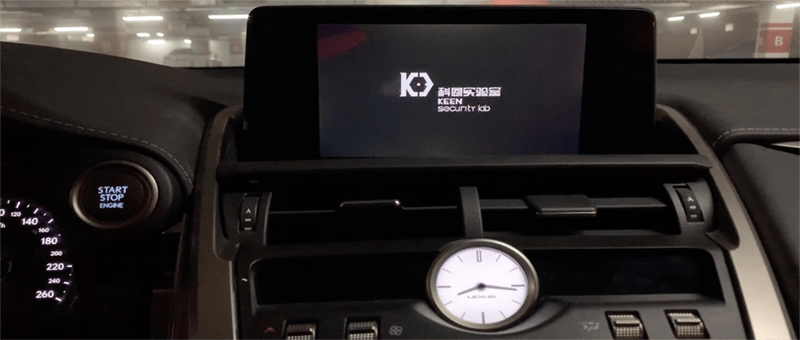
Since 2017, Lexus has equipped several models (including Lexus NX, LS and ES series) with a new generation infotainment, which is also known as AVN (Audio, Visual and Navigation) unit. Compared to some Intelligent connected infotainment units, like Tesla IVI and BMW ConnectedDrive system, the new Lexus AVN unit seems to be a bit more traditional. From a security perspective, it may highly reduce the possibility of being attacked by potential cybersecurity issues. But a new system is always introducing new security risks. After conducting an ethical hacking research on a 2017 Lexus NX300, Keen Security Lab [1] has discovered several security findings in Bluetooth and vehicular diagnosis functions on the car, which would compromise AVN unit, internal CAN network and related ECUs. By chaining the findings, Keen Security Lab are able to wirelessly take control of AVN unit without any user interaction, then inject malicious CAN messages from AVN unit into CAN network to cause a vulnerable car to perform some unexpected, physical actions.
Currently, Toyota is in progress working on the mitigation plans. Therefore, we decided to just make a brief disclosure in this paper, instead of a full disclosure which would be considered as irresponsible to vehicle users. If all goes well, the full technical report will be released at a proper time in the year 2021.